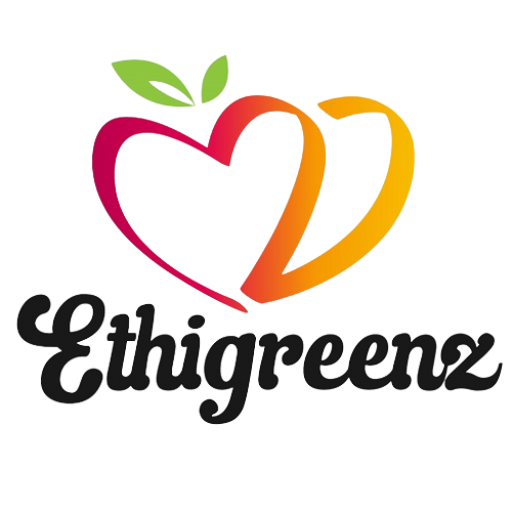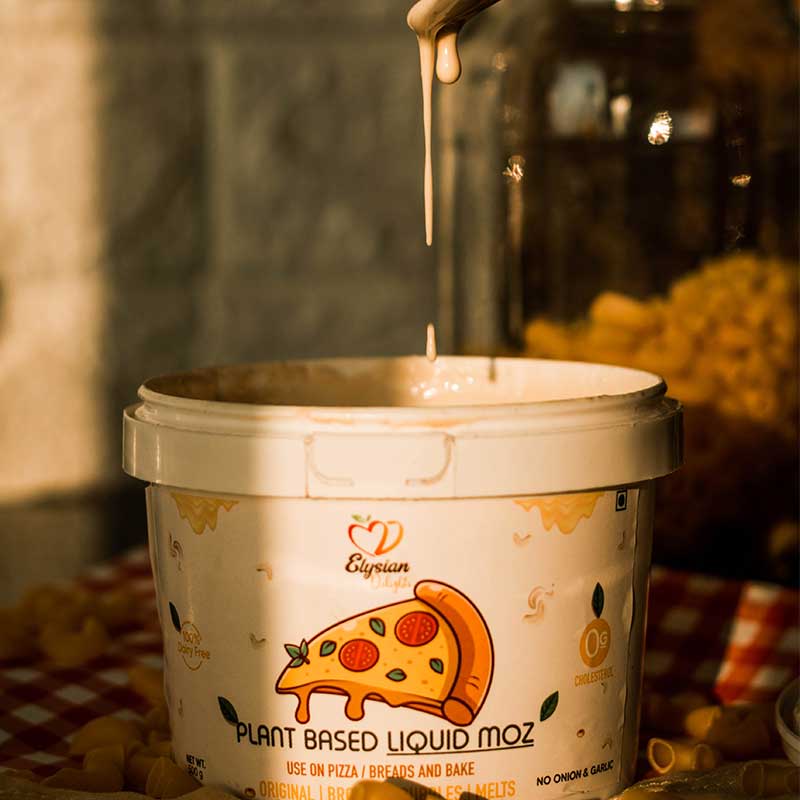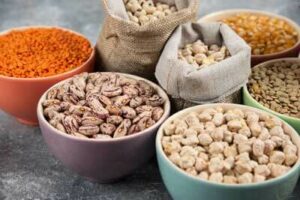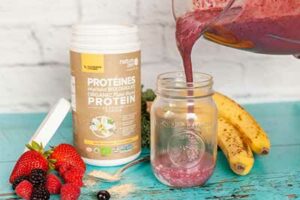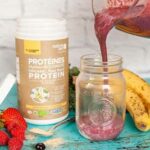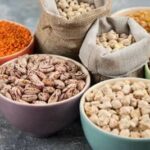Vegan cheese, also known as plant-based cheese, is a dairy-free alternative to traditional cheese that is made entirely from plant sources. It is specifically crafted to mimic the taste, texture, and melting properties of dairy cheese while remaining free from animal products. Vegan cheese is becoming increasingly popular among individuals who follow a vegan or dairy-free diet, as well as those seeking healthier or more sustainable alternatives. With advancements in food technology and the creativity of vegan chefs, there is now a wide variety of vegan cheese options available, ranging from creamy spreads to meltable slices, and even artisanal aged cheeses. In the following sections, we will delve into the definition, types, and benefits of vegan cheese, providing you with a comprehensive guide to this exciting and evolving category of plant-based culinary delights.
This article is structured in a way to first share details about brands, details about our own vegan cheeses, details on how you could make some yourself and lastly end the article with answering few frequently asked questions to give you a headstart into the journey of Plant Based Cheeses.
Types of Vegan Cheese
A. Nut-based cheeses
- Almond cheese
- Cashew cheese
- Macadamia cheese
B. Soy Based Cheeses
- Tofu-based cheese
- Tempeh-based cheese
C. Coconut Based Cheeses
D. Other Plant Based Cheeses
- Rice based Cheese
- Potato based cheese
E. Cultured & Uncultured Vegan Cheese
Why should you choose Vegan Cheese over Dairy Cheese?
This is a big topic, best for another article but we will list a few headlines for you to consider.
- Environmental Impact
- Reduction of animal agriculture and greenhouse gas emissions
- Water and land use considerations
- Sustainable sourcing and production practices
- Health Impact
- Zero Cholesterol & Lower Risk of Heart Diseases
- Healthier & Cleaner Ingredients
- Animal Cruelty
- Animals are subjected to horrible conditions, injected with medications for more production, their kids used for meat industry and skin used for leather industry which further pollutes water.
Debunking Myths about Vegan Cheese Production
- Myth: Vegan cheese is highly processed and full of artificial ingredients. Reality: While some vegan cheeses may contain processed ingredients, it is not representative of all vegan cheese products. Many vegan cheese brands use natural and whole food-based ingredients, such as nuts, seeds, and plant-based proteins, to create their products. Just like with any food, it’s important to read the ingredient labels to make informed choices and select products that align with your preferences.
- Myth: Vegan cheese doesn’t taste like real cheese. Reality: Taste preferences are subjective, but vegan cheese options have come a long way in terms of taste and texture. With advancements in plant-based ingredients and food technology, many vegan cheeses closely mimic the flavors and textures of traditional dairy cheese. While they may have slight differences, many people find vegan cheeses to be delicious and enjoyable in their own right.
- Myth: Vegan cheese is always made with soy, which is genetically modified. Reality: While some vegan cheeses are soy-based, it is not the only ingredient used. There are a variety of vegan cheese options available that utilize different plant-based ingredients, such as nuts, seeds, vegetables, and legumes. Additionally, many brands offer non-GMO and organic options, so it is possible to find vegan cheeses made without genetically modified ingredients if that is a concern.
- Myth: Vegan cheese production contributes to deforestation and environmental damage. Reality: The environmental impact of vegan cheese production can vary depending on the specific brand and sourcing practices. However, plant-based cheese alternatives generally have a lower environmental footprint compared to dairy cheese. Dairy production is associated with deforestation, greenhouse gas emissions, and water pollution, whereas plant-based alternatives can mitigate these issues. Many vegan cheese brands prioritize sustainable sourcing and production practices to minimize their environmental impact.
- Myth: Vegan cheese is not as nutritious as dairy cheese. Reality: Vegan cheeses can offer nutritional benefits depending on the ingredients used. While they may differ in terms of protein content and specific nutrients, vegan cheeses can provide essential nutrients like healthy fats, vitamins, minerals, and dietary fiber. Some brands fortify their products with additional nutrients to offer a well-rounded alternative. As with any food, it’s important to choose a balanced diet that includes a variety of nutrient-rich foods.
Depending on your preferences and availability of options in your locality, the purchase decisions can be made. Quite frankly, if a cafe or kitchen near me made cleaner product and I could trust them by meeting the owner – I would definitely prefer to buy products from them rather than purchase it online. These will be freshly made, with customizations based on our requirement.
Popular Vegan Cheese Brands and Products
As the popularity of veganism continues to rise, so does the demand for plant-based alternatives to traditional dairy products. One area that has seen significant growth and innovation is vegan cheese. From creamy spreads to meltable slices, vegan cheese brands around the world are offering a wide range of delicious and dairy-free options. Best part about dairy free cheeses is that we get to make our own flavours. Some are fermented, some have fermented ingredients, some are made using umami flavours and so on.
Over the last 5-6 years, many vegan cheese making brands have emerged ind India and are developing the best possible options for us. Honestly, the tastiest ones are the ones with a good amount of cashews in them. One common question comes to mind – What brand of cheese is dairy free? Some of the common names that are marketed PAN India are One Good, Soft Spot, Violife, Chetran’s, Katharos and a few more that manufacture cheeses which can be transported across the country or have it in stores in different locations. A few amazon links are listed below for your reference. Check them out and let us know which ones you liked the best?
These links are commission based amazon associate. We earn a commission when you buy using these links.
Another question that comes to mind is – What is the best vegan substitute for cheese? Apart from the brands available online, if you wish to make vegan cheese at home, follow the simple steps as a substitute –
- Boil cashews and make a thick paste by grinding it with some water in your mixer.
- Let it sit in fridge for a day and on the next day, add some black salt to it. Cashew ferments a bit on it’s own and hence will have that tangy flavour the next day. Suppose you do not wish to wait an entire day, simply add some lemon juice or apple cider vinegar to your cashew paste and that gives you a cheese spread. Yes, to make them more tasty, there are other ingredients you could add to the mix like starches, coconut oil, garlic and onion powders.
Process for Crafting Vegan Cheese
Commercial and Homemade processes are different and are recipe dependent obviously, but here we will list a few steps that will be common to both processes and can help you get started on your journey.
- Soaking – Soaking of nuts or boiling them. Generally cashews are used here. Soaking helps in softening the cashews, and also in removing phytic acid which hampers absorption of essential nutrients. More on this here.
- Blend & Straining: Once soaked, we blend the nuts/seeds and strain via nut milk bag to remove the fibers. In case of cashews, you generally dont need to strain. Get a clean mixture, then add your remaining ingredients in blender with this strained vegan milk. Ingredients like flavouring, nutritional yeast, miso, salt, Starches, oil, spices etc and blend.
- Cook: This step is at times skipped depending on the type of cheese you are making. But lets assume cooking is required and we cook our mixture till a desired consistency is obtained. For fermented ones cooking doesnt happen or it’s done in initial stages and cooled before the fermentation probiotics are added.
- Set in mould and let it rest for a few hours. There you have your vegan cheese 🙂
A couple of Channels to follow to learn the secrets of vegan cheese are as follows –
Secrets to Vegan Cheeses Revealed !!!
Do you feel the Secrets to make vegan cheeses have been revealed yet? Probably not yet. We have lot of information to follow below, but here’s a couple of secrets from our end which are greatly simplified, summarized and have been tested many times, before we got our products to work –
How to add Tang to Vegan Cheese?
- Lemon Juice
- Apple Cider Vinegar
- Lactic Acid
- Citric Acid
How to add Umami Flavour to Vegan Cheese?
- Sauerkraut Juice
- Miso
- Nutritional Yeast
- Cheese Flavours
How to add Fermented Taste to Vegan Cheese?
combination of tang and Umami Flavour mentioned above – mixture of the above products or a probiotic capsule.
How to make vegan cheese Soft and meltable?
Add Oil – Coconut or Sunflower Oil or Palm oil should work well.
How to make vegan cheese slightly stretchy?
Add Starches like potato, tapioca or corn or a combination.
How to make vegan cheese shreddable?
Add vegan gelatin, agar agar powder and similar powders.
Popular Recipes for Enjoying Vegan Cheese
- Vegan Grilled Cheese Sandwich:
- YouTube Link: Vegan Grilled Cheese Sandwich
- Vegan Margherita Pizza:
- YouTube Link: Vegan Margherita Pizza
- Vegan Mac and Cheese:
- YouTube Link: Vegan Mac and Cheese
- Vegan Nachos with Cashew Cheese Sauce:
- YouTube Link: Vegan Nachos with Cashew Cheese Sauce
- Vegan Stuffed Bell Peppers with Vegan Cheese:
- YouTube Link: Vegan Stuffed Bell Peppers with Vegan Cheese
- Vegan Caprese Salad with Vegan Mozzarella:
- YouTube Link: Vegan Caprese Salad with Vegan Mozzarella
- Vegan Cheese Quesadillas:
- YouTube Link: Vegan Cheese Quesadillas
- Vegan Cheesy Broccoli Soup:
- YouTube Link: Vegan Cheesy Broccoli Soup
FAQs around Plant Based Cheeses
Does Ethigreenz Make it’s own Vegan Cheese?
At Ethigreenz Cafe, we take great pride in crafting our vegan cheeses with utmost care and attention. In market, there are two distinct categories of vegan cheeses to cater to different customer preferences. The first category comprises cheeses that are made for mass availability, ensuring wider accessibility through shelves, e-commerce platforms, and retail channels. These cheeses are carefully developed to maintain consistent quality, flavors, and textures.
Second category, which involves crafting fresh vegan cheeses made to order. Each order is meticulously handcrafted, allowing us to customize the cheeses based on individual customer demands. This personalized approach ensures that every product we create receives the time and dedication it deserves, resulting in a truly unique and exceptional experience for our customers.
One of our primary goals is to make vegan cheese more accessible to a broader audience. We understand that affordability plays a crucial role in encouraging people to choose ethically conscious and cruelty-free products. Therefore, while we maintain a commitment to using high-quality ingredients and ensuring superior nutritional value, we strive to keep our products reasonably priced. Our aim is to encourage more individuals to explore vegan alternatives and contribute to reducing animal cruelty.
Transparency and trust are paramount to us at Ethigreenz. We believe in fostering an honest and open relationship with our customers. To uphold this commitment, we prioritize using clean and pure ingredients, ensuring that our customers have full visibility into the production process. This emphasis on transparency not only reflects our integrity but also helps establish a sense of trust with our valued customers.
Furthermore, our dedication to quality extends beyond transparency. By meticulously selecting our ingredients, we create vegan cheeses that not only replicate the flavors and textures of traditional dairy cheese but also offer a healthier alternative. Our range includes options for both oil and oil-free cheeses, providing our customers with an additional level of choice to suit their dietary preferences and needs.
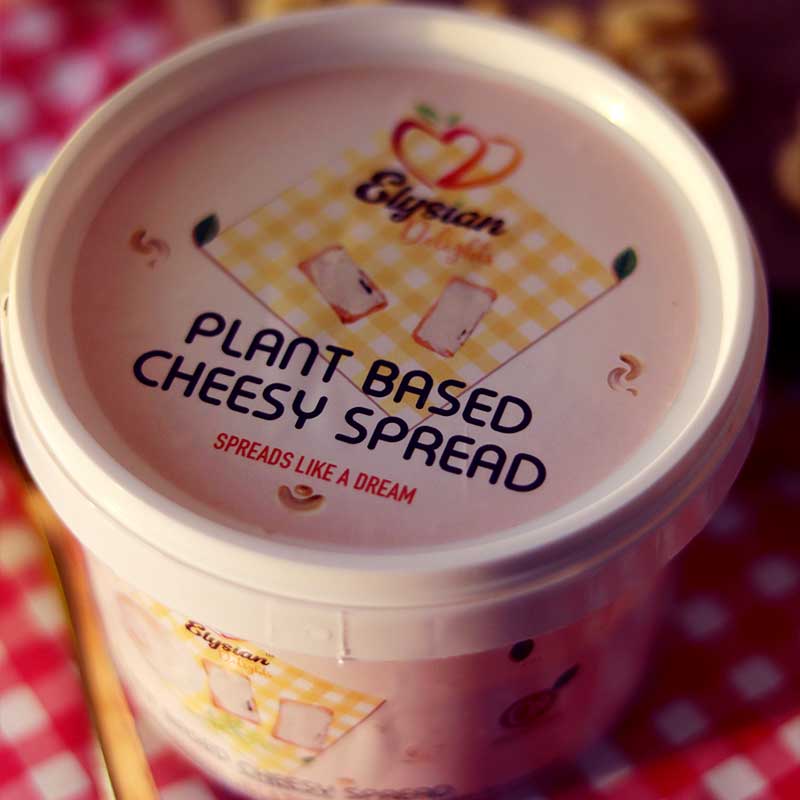
Currently, we have four fresh vegan cheeses available. Two of our popular products, the Cheesy Spread and Liquid Pizza Moz, are featured on our shop page. These options are particularly appealing to Jain customers as they do not contain onion and garlic, ensuring inclusivity. Additionally, we have a specially curated cheese for our pizzas, which incorporates a selection of spices to elevate the taste experience.
Lastly, we are thrilled to announce the upcoming official launch of our Grateable Cheese, which can be grated on pizzas or sliced for use in burgers and sandwiches. This new addition to our range further expands the possibilities for culinary creativity and enjoyment. We plan to stick to making fresh cheeses only for a while to maintain the quality, and also test the market as we hear a lot of people prefer to have fresh made food over generally manufactured one. Your support in spreading the word will help us keep it a sustainable choice.
At Ethigreenz Cafe, we continuously strive to innovate and experiment, seeking to delight our customers with new and exciting flavors and options. Our commitment to handcrafting fresh vegan cheeses while keeping them affordable is a testament to our passion for ethical choices, animal welfare, and the creation of a healthier and more sustainable future.
Are Vegan Cheeses High in Fat?
The fat content of vegan cheese can vary depending on the specific brand, ingredients, and manufacturing process. Some vegan cheeses may have a higher fat content, while others may be lower in fat.
In general, plant-based cheeses tend to contain less saturated fat compared to traditional dairy cheese. This is because they are typically made from plant-based sources such as nuts, seeds, or legumes, which naturally have lower saturated fat content than dairy products derived from animal milk. However, it’s important to note that vegan cheeses can still contain significant amounts of fat, especially from sources like nuts and oils used in their production.
It’s always a good idea to check the nutrition labels and ingredients list of specific vegan cheese products to get a better understanding of their fat content. Some vegan cheese brands offer reduced-fat or low-fat options, which can be a good choice for individuals who are conscious of their fat intake.
Additionally, it’s worth mentioning that while fat content is an important consideration, vegan cheese can provide other nutritional benefits, such as being cholesterol-free and rich in essential nutrients like vitamins, minerals, and protein, depending on the ingredients used in their production.
As with any food, moderation is key. It’s important to consume vegan cheese as part of a balanced and varied diet, considering your overall fat intake from all sources.
Does Vegan Cheese Melt?
A short answer would be – Overall, while vegan cheese may not melt in the exact same way as dairy cheese, there are many options available that can provide a satisfying and melty experience in a variety of dishes.
Some vegan cheeses, particularly those made from plant-based fats and proteins, are formulated to melt when exposed to heat. They can be used in various recipes, such as grilled cheese sandwiches, pizza toppings, or melted over pasta dishes.
However, it’s worth mentioning that the melting behavior of vegan cheese may not be identical to dairy cheese. Some vegan cheeses may have a slightly different texture or melt at a different rate. It may require some experimentation to find the right vegan cheese that achieves the desired melting consistency and flavor profile for your specific needs. The cheese we make at Ethigreenz, becomes soft and spreadable, but does not stretch like dairy cheese. Casein is a protein in Dairy Milk that allows for that stretch. If stretch is what you are looking for, it will take a while for dairy free cheeses to reach that point after much processing and experiments.
Does Vegan Cheese have Cholesterol?
No, vegan cheese does not contain cholesterol. Cholesterol is a type of fat that is found exclusively in animal-derived products, such as dairy cheese, meat, and eggs. Since vegan cheese is made from plant-based ingredients, it does not naturally contain any cholesterol.
Cholesterol is produced by animals, including humans, to fulfill certain essential functions in the body. However, excessive consumption of dietary cholesterol, particularly from animal sources, can contribute to increased cholesterol levels in the blood, which can be associated with various health issues.
Why are Vegan Cheeses Costly?
There are several factors that can contribute to the higher cost of vegan cheeses compared to their dairy-based counterparts. Here are some reasons why vegan cheeses may be relatively more expensive:
- Ingredient Costs: The ingredients used in vegan cheeses, such as nuts, seeds, and plant-based proteins, can be more expensive than the ingredients used in traditional dairy cheese. Plant-based ingredients often require more processing and sourcing to create cheese-like textures and flavors, which can increase production costs.
- Manufacturing Processes: The production of vegan cheeses often involves additional steps and specialized processes to achieve the desired taste and texture. This can require more time, labor, and equipment, leading to higher production costs.
- Limited Scale of Production: Compared to the vast dairy industry, the production of vegan cheeses is still relatively niche. Smaller-scale production can result in higher costs due to economies of scale. As demand for vegan cheeses continues to grow, it is expected that increased production and competition will help lower costs over time.
- Research and Development: Developing vegan cheese recipes and formulations that closely mimic the taste, texture, and melting properties of dairy cheese can require significant research and development efforts. These costs can be reflected in the final price of the product.
- Market Demand and Availability: The growing demand for vegan cheeses has resulted in increased competition, which can impact pricing. Additionally, the availability of vegan cheeses may vary depending on the region, and limited distribution networks can affect prices.
It’s important to note that while vegan cheeses may be relatively more expensive, there is a wide range of options available at different price points. Additionally, as the market for vegan cheeses continues to expand, economies of scale, advancements in technology, and increased competition may help make vegan cheeses more affordable in the future.
Why are cashews used in place of cheese in many vegan recipes?
It all boils down to research, availability, taste and texture. A few resaons why cashews are used in vegan cheeses are as follows –
- Creamy Texture (boiling and making it a paste doesnt require straining as it completely becomes a paste.)
- Nutritional Profile (Healthy with more nutrients)
- Mild Flavour – Normally ingredients have their own taste adding to overall flavour. Cashews have a universal mild taste.
- Easy Availability in every store.
What can be used to replace cashews in vegan recipes like in macaroni and cheese?
An easy solution would be to use water with corn starch. It gives a creamy texture and binds the ingredients together. Other starches can also be used to achieve the same.
Is Vegan Cheese Healthier than Dairy Cheese?
Cholesterol: Dairy cheese contains dietary cholesterol, while vegan cheese which is made from plants, is cholesterol free. Cholesterol is linked with various health issues like blood pressure, heart troubles. So conscious approach would be to avoid cholesterol intake.
Saturated Fat: Dairy cheese is normally high in saturated fats, which is associated with increased risk of heart disease. Some vegan cheeses do have saturated fats based on the ingredients used like coconut oil, cocoa butter. Hence choosing plant based cheeses with less or mostly nutty ingredients would be a better choice. At Ethigreenz, we make it using majorly cashews, so another reason to choose our freshly made dairy free cheese.
Nutrient Profile: Plant based cheeses, if made with nuts, seeds would be healthy more digestible and healthy alternative. Check the labels for the best suited one for you.
Lactose Intolerance: Vegan cheeses are naturally lactose-free. It is said according to a research that 60% people are lactose intolerant in some form and intensity. Dairy free alternatives would be a great choice for such a situation. Ideally, dairy is meant for cows, not humans. So best is to use plant based products meant for everyones consumption.
In conclusion, the future of the vegan cheese industry is bright, with an increasing number of people seeking delicious, ethical, and sustainable alternatives to traditional dairy cheese. There is scope of vast enhancements, to get the exact mouth feel, the stretch people go gaga over and the taste if one wishes to only compare with dairy cheeses. Otherwise, the level at which we currently are, is more than enough, offering us more and more variations of the same process of making vegan cheeses. As the industry continues to evolve, we can expect more exciting developments, enhanced quality, and wider accessibility, ultimately contributing to a more compassionate and planet-friendly food system.
